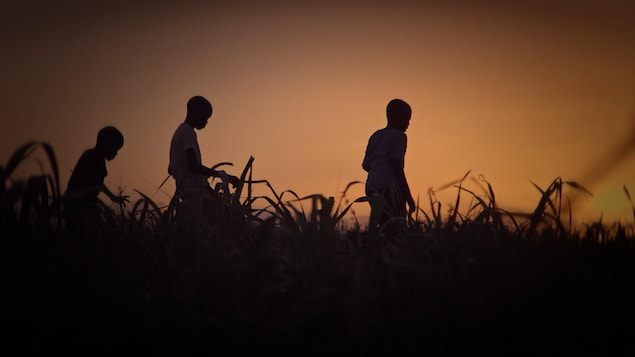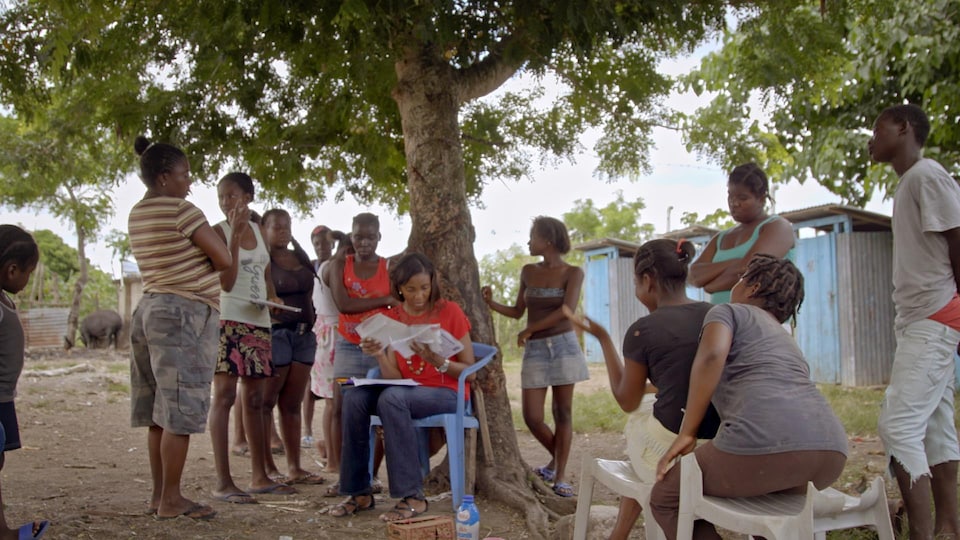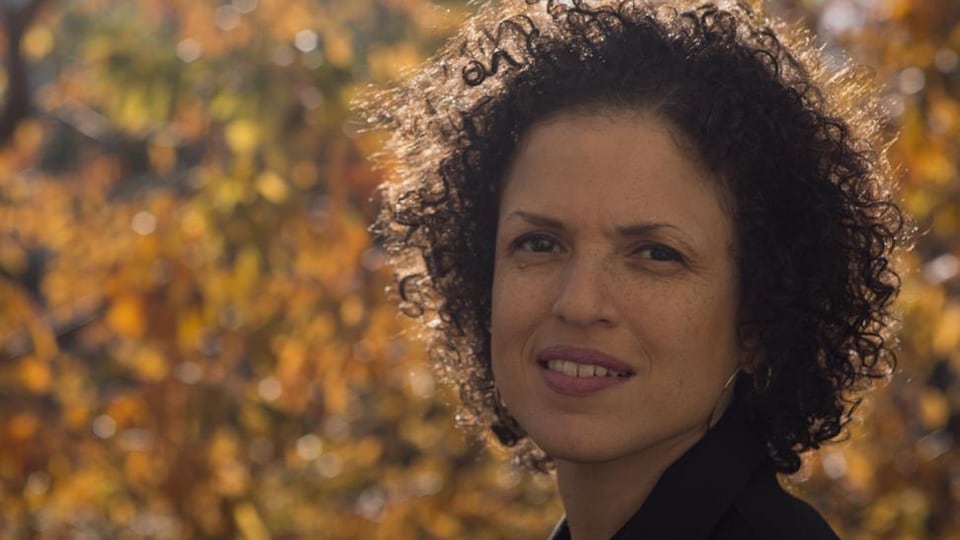I’ve always grown up with a Dominican relationship through my family, and growing up I’ve always heard about the shared history, but also the tensions that exist between the two countries.
, explains the Haitian-born filmmaker, in an interview with the columnist all morning Eugenie Lippin Blondeau.
Michelle Stephenson arrived in Quebec at the age of eight with her family. She grew up in Eastern Townships, then studied political science at McGill University in Montreal and Carleton University in Ottawa.
Highlight an unknown part of history
With this new documentary, the director saw an opportunity to reconnect with the island from its origins and thus tell an unknown story. So she’s following Rosa Iris Dendomie Alvarez, her Dominican mother and Haitian father, during her 2016 campaign to be elected to the Dominican Congress. In 2018, the young lawyer went into exile.
The roots of this story go back to 1937, when the Dominican Army exterminated tens of thousands of Haitians and Dominicans of Haitian descent. Then in 2013, the Supreme Court of the Dominican Republic withdrew their citizenship from people with Haitian parents, retroactively to 1929. The result is that more than 200,000 people find themselves stateless.
How does the director explain the hatred towards the Dominican community of Haitian descent? She said it was a racial system that existed. The light-skinned elites in power have the means, they want to make profits, and the workforce is kept invisible, and some are in a state of slavery. […] In order to be able to maintain this system, we must internalize it and believe in it. For ultra-nationalists, Europeans and whites are all the best, and they can’t see themselves in the mirror.
Listen to the ultra-nationalists
I don’t know if my looks are neutral, but I hope people at the end of the movie are inspired by Rosa Iris
, mentions Michelle Stevenson.
in a statelessThe director also gives voice to the ultra-nationalists in the Dominican Republic. Another lawyer, Gladys, exemplifies this situation in the documentary. Is this a way to show her neutrality?
The important thing for me is that we don’t caricature Gladys and that we understand that she is human and experiences shape her way of seeing the world, even though you can’t change her beliefs. It’s almost a religion, this ultra-nationalism and this anti-Haitianism that’s in it.
We must take her seriously, because her movement has a direct impact on Rosa Iris and her community.
, she adds.
However, the director admitted that it was very difficult to hear the hatred that she expressed, but she allowed her to express herself in order to get the material for her film. To her, with my fair skin, I wasn’t a Haitian, she just thought I was from the States. I didn’t tell her the reality and she didn’t ask me, but I never hid my intentions for the documentary
Adds Michelle Stephenson.
Obviously, Michelle Stevenson could have made her own documentary without this character whose existence sparked controversy in post-production. For me, I found it important to have Gladys’ voice, because Dominicans could see the movie and see a loved one that she represented. It could also be my aunt or my neighbour. This shows what is there and what is complex. I’m not here to make action movies
defeated Michelle Stevenson.
Links to Indigenous Status in Canada
Michelle Stephenson wanted to expand the mission of her documentary by exposing dramas that also took place in other countries.
I wanted to talk about the work of women like Rosa Iris in this area, but also to think about the history of our island in relation to this genocide in 1937. It is a hemisphere with what happened in Guatemala or in Canada with the indigenous people. Societies. It is a common story that has its roots in colonialism.
She hopes her documentary will open up a discussion not only in the Dominican Republic and Haiti, but around the world. She would like us to see her as a mirror of our societies and to be more equitable. As we dig up the bodies of Aboriginal children, we have to confront what we have internalized, the legacy of this violent story and how to get out of it.
The manager believes that culture can be used to change the way we think. In the Dominican Republic, it’s more complicated than racism, because for me blacks are against other blacks. There is a lot of work to be done that starts with the art and the narrative it evokes
, concluded.
stateless It will be presented from August 20 at the Cinéma du Musée and at the Cinéma du Parc in Montreal, and will be shown online on September 3 at the Cinéma en ligne.

“Total creator. Evil zombie fan. Food evangelist. Alcohol practitioner. Web aficionado. Passionate beer advocate.”



